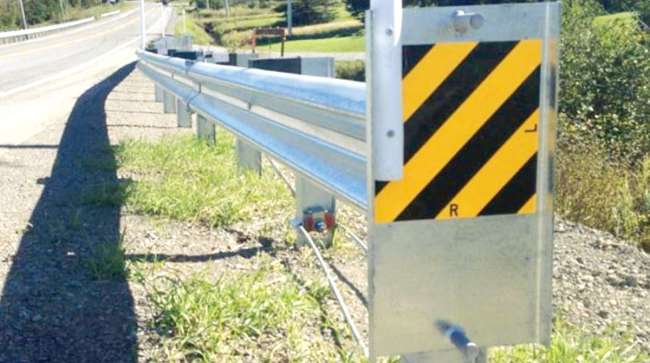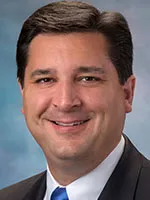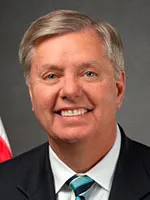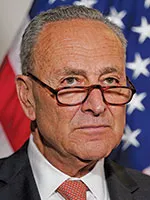Senior Reporter
House T&I Explores Road Safety Improvements

[Stay on top of transportation news: Get TTNews in your inbox.]
WASHINGTON — Congressional Republicans on the House transportation committee tasked with finalizing a highway policy bill are pressing for safety improvements across mobility corridors.
The leadership of the Transportation and Infrastructure panel on Feb. 12 explored policies meant to improve roadway safety. Such policies will help inform the committee’s version of comprehensive legislation later this year.
Rep. David Rouzer (R-N.C.), chairman of the Highways and Transit Subcommittee, pointed to a need for investing in technological advancements as well as modernizing modes that lead to initiatives for realizing safer connectivity.
“Our current and future road design standards can help drive down fatalities across our communities. Pavement and guardrail standards should adapt to new vehicle technology, such as electric vehicles, which weigh more than traditional vehicles,” said Rouzer, who noted nearly 41,000 individuals died last year in motor vehicle crashes, according to the National Highway Traffic Safety Administration.

Rouzer
“We should consider if updates to the design standards for guardrails are necessary to absorb the heavier weight and prevent these heavier vehicles from crossing the median into oncoming traffic,” he added. “We also need to continue to address work zone safety. Reckless driving puts our roadside workers at greater risk of injury or death.”
Republicans on the panel echoed Rouzer’s viewpoint. Del. Eleanor Holmes Norton (D-D.C.), the subcommittee’s ranking member, pointed to benefits associated with 2021’s bipartisan infrastructure law as tools for improving safety on freight and commuter corridors. The Biden-era law provides billions of dollars for road safety programs.

Norton
“States and localities now have unprecedented resources to tackle the safety crisis,” Norton explained. “The [bipartisan infrastructure law] increased funding for the Highway Safety Improvement Program by 34% to help states implement data-driven safety plans. It created a new Vulnerable Road User Special Rule to direct more dollars to projects that protect those not traveling in vehicles.
“And through the Safe Streets and Roads for All program, the [bipartisan infrastructure law] covered 75% of the nation’s population with roadway safety plans.”
Federal authority for certain highway programs expires in the fall of 2026.
Meanwhile, congressional leaders kicked off consideration of an all-encompassing budget framework designed to advance key aspects of President Donald Trump’s agenda.
The House Budget Committee intends to consider a resolution Feb. 13. Included in the resolution are directions for the House Transportation and Infrastructure Committee to “submit changes in laws within its jurisdiction to reduce the deficit by not less than [$10 billion] for the period of fiscal years 2025 through 2034.”
Today, the House Budget Committee, under the leadership of Chairman @RepArrington, released a budget resolution to pave the way for passage of major priorities of President Trump’s agenda. I applaud Chairman Arrington’s hard work and diligence to put together a budget resolution… — Steve Scalise (@SteveScalise) February 12, 2025
If adopted, the transportation panel would be required to adhere to the Budget Committee’s instructions. House Majority Leader Steve Scalise (R-La.) called on colleagues to approve the resolution, which he insisted “will unify our [congressional Republican] conference and provide the foundation necessary to begin delivering on the mandate the American people gave us and President Trump to secure the border, produce more American energy, extend the Trump tax cuts for families and small businesses, and bring common sense to Washington rules and regulations.”
“Now is the time for House Republicans to come together and start the budget reconciliation process, first in the Budget Committee and then on the House floor, to unite behind President Trump, and make good on our promises to the American people,” Scalise added. “Let’s pass this resolution and start delivering for those hardworking families who have been struggling for too long.”

Graham
Sen. Lindsey Graham (R-S.C.) is leading the upper chamber’s budgetary effort that reflects aspects of the House’s version. The Senate is on track to approve its version of the resolution as early as this month.
“This budget resolution jump-starts a process that will give President Trump’s team the money they need to secure the border and deport criminals, and make America strong and more energy independent,” Graham explained.
The procedural reconciliation process is designed to allow legislation to pass by simple majority. Such a move bypasses the filibuster procedure in the Senate. Ultimately, Republican leaders said their aim is for the budget’s final version to clear for enactment within the president’s first 100 days.

Schumer
The GOP-led final budget bill would reflect policies central to border security, military readiness, the social safety net, domestic energy, transportation operations as well as extending the 2017 Trump-era tax cuts.
Senior Democrats are expressing concern about the Republican leadership’s budget and tax strategies. This month, Minority Leader Chuck Schumer (D-N.Y.) observed, “It all comes down to the same thing: The end goal for Republicans is to pass gargantuan tax cuts for Donald Trump and their billionaire friends.
“Cut the daylights out of everything else — Medicaid, Medicare, school lunches, prescription drug reform, medical research — for these tax cuts. The American people are going to learn this as we move forward, and I don’t think they’re going to like it.”
Want more news? Listen to today's daily briefing below or go here for more info:


